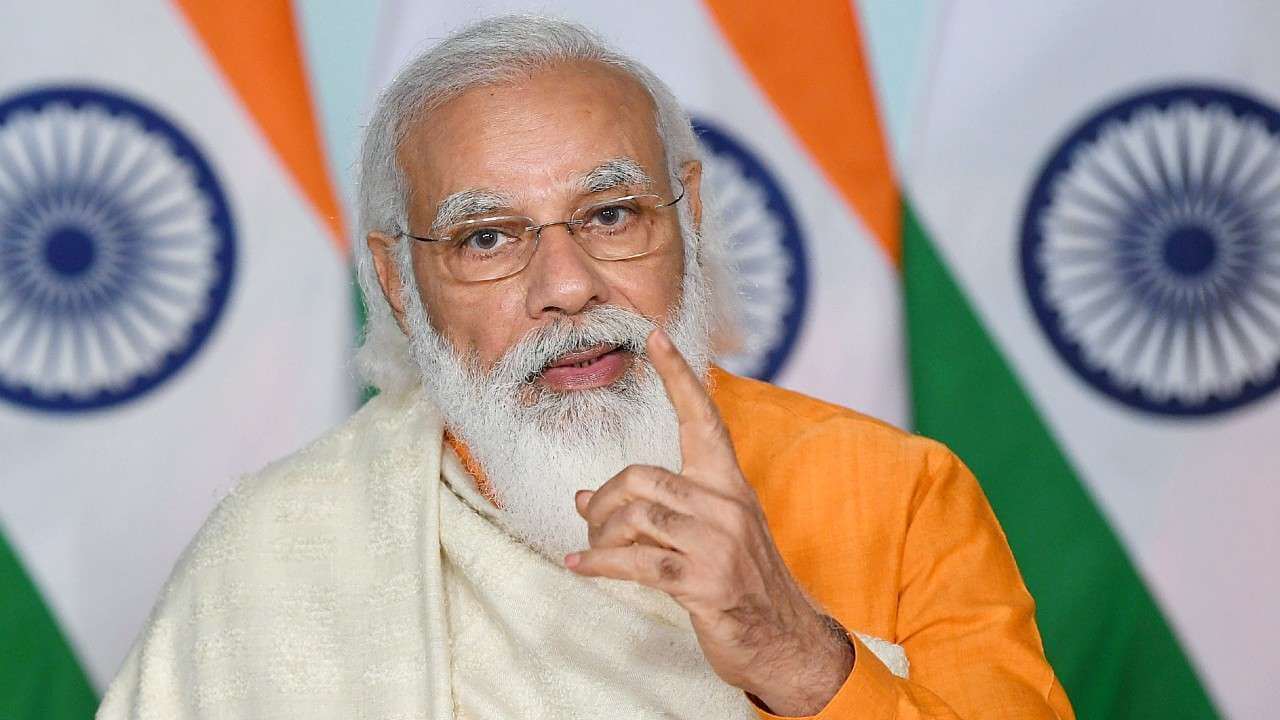Indian Prime Minister Narendra Modi delivered a speech at the Leaders’ Climate Summit convened by Joe Biden today and welcomed the opportunity to discuss the “grave threat of climate change has not disappeared” even though the focus over the last year has been on the coronavirus pandemic.
Modi noted that the lives and livelihoods of millions around the world have been “adversely impacted” by climate change and thus called for “concrete action” at a “high speed, at a large scale, and with a global scope”.
To this end, he remarked that “India is doing its part” by setting an “ambitious renewable energy target” of 450 gigawatts by 2030, adding that these efforts have been supported by multiple “clean energy, energy efficiency, afforestation, and biodiversity” projects.
In this light, he spoke about India’s Nationally Determined Contributions (NDCs) that form part of the Paris Climate Accords and said that the country is “2 degrees compatible”. What this essentially means is that if all countries around the globe matched India’s efforts, then the world could possibly limit global temperature rise by the year 2100 to no higher than 2°C.
Therefore, he said that global cooperation is required to successfully meet such targets and thus extolled the benefits of initiatives such as the International Solar Alliance that was created by India, which brings together 121 countries that seek to increase the consumption of solar energy and reduce reliance on fossil fuels. India is also a participating member in the United Nations’ (UN) Coalition for Disaster Resilient Infrastructure, which acknowledges the increased risk of climatic events that climate change brings and aims to reduce their impact through sustainable development.
Keeping all of this in mind, he labelled India as a “climate responsible developing country” and like in many of his other speeches in multilateral fora, welcomed foreign investment in India, this time to “create templates of sustainable development in India”. In fact, he suggested that such partnerships could also assist other developing countries in gaining “affordable access to green finance and clean technologies”.
Modi then used this as a launching pad to announce the establishment of the India-US Climate and Clean Energy Agenda 2030 Partnership, which he said would “mobilise investment, demonstrate clean technologies, and enable green collaboration”.
In his final remarks, PM Modi sought to address commonly-held beliefs that developing countries like India are disproportionately responsible for rapid climate change and pollution. Modi said, “India’s per capita carbon footprint is “60% lower than the global average.” He attributed this to the fact that the Indian “lifestyle” remains “rooted in sustainable, traditional practices”. This, he said, underscored the importance of individuals adopting more “sustainable lifestyles” that go “back to basics”, and said that the coronavirus pandemic was a most opportune time for an overhaul of our collective “guiding philosophies” and use it as motivation to ensure that this is a “decade of action against climate change”.

